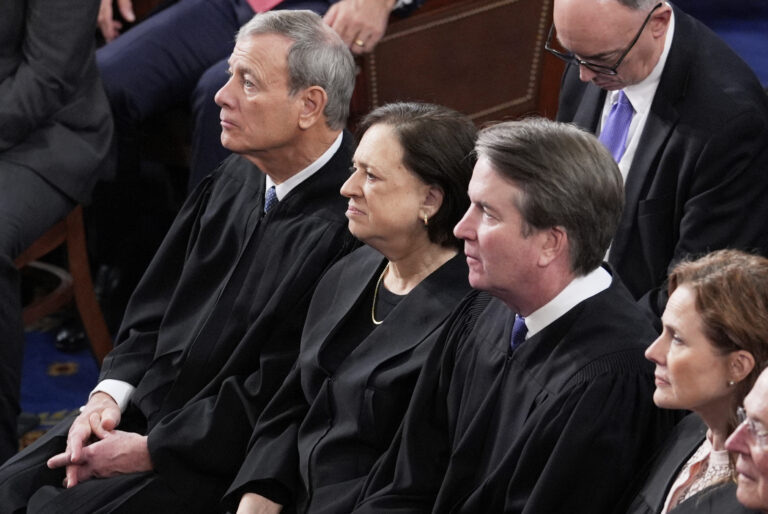Two small toy companies have petitioned the U.S. Supreme Court to overturn President Donald Trump’s global tariffs, arguing that he exceeded his authority under the International Emergency Economic Powers Act (IEEPA).
Why It Matters
The Supreme Court’s decision on whether to hear the case could have significant implications for the scope of executive power in trade policy.
Trump’s tariffs led to global market turmoil, particularly after the president rolled out hefty tariffs targeting almost every U.S. trading partner on April 2, which he dubbed “liberation day.” The president has since backtracked on the initial announcement, but the U.S. tariff policy remains in flux.

More
Associated Press
What To Know
Tuesday’s petition comes from an earlier case in which a federal judge sided with two Chicago-based toy companies and ruled that Trump overstepped his powers when invoking the IEEPA to impose tariffs. The Trump administration appealed the ruling, which was limited to the two toy companies, after which the plaintiffs went to the U.S. Supreme Court.
“In light of the tariffs’ massive impact on virtually every business and consumer across the nation, and the unremitting whiplash caused by the unfettered tariffing power the president claims, challenges to the IEEPA tariffs cannot await the normal appellate process [even on an expedited timeline],” the family owned toy companies, Learning Resources Inc. and hand2mind Inc., said in their petition to the high court.
“There is ample reason for this Court to grant certiorari before judgment now so this case can be briefed over the summer and argued as soon as possible.”
Trump’s global tariffs were also blocked by the U.S. Court of International Trade (USCIT) in a separate case last month, but a federal appeals court quickly stayed the ruling, allowing the tariffs to remain in place while legal proceedings play out.
The USCIT’s three-judge panel said in its summary judgment: “The question in the two cases before the court is whether the International Emergency Economic Powers Act of 1977 [‘IEEPA’] delegates these powers to the President in the form of authority to impose unlimited tariffs on goods from nearly every country in the world.”
“The court does not read IEEPA to confer such unbounded authority and sets aside the challenged tariffs imposed thereunder.”
The White House lashed out at the court before its ruling was stayed by the appeals court, telling Newsweek that it’s not up to “unelected judges to decide how to properly address a national emergency.”
One of the judges on the panel is a Trump appointee. The other two were appointed by Ronald Reagan and Barack Obama.
What People Are Saying
Rick Woldenberg, the CEO of the two toy companies, told Bloomberg: “We’ve had extraordinary expenses, dramatically shifting our supply chain basically overnight—a supply chain we built over 40 years. I feel like a refugee from a war, where we’re sort of loading everything up in the donkey cart and going to a safer place, not really knowing if the safer place we’re going to is really safe.”
White House spokesperson Kush Desai, in a statement: “The Trump administration is legally using the powers granted to the executive branch by the Constitution and Congress to address our country’s national emergencies of persistent goods trade deficits and drug trafficking. If the Supreme Court decides to hear this unfounded legal challenge, we look forward to ultimately prevailing.”
What Happens Next
The Supreme Court will decide whether to take up the case or allow the appeals process to play out.
Update 6/17/25, 3:18 p.m. ET: This story has been updated with additional information and context.


